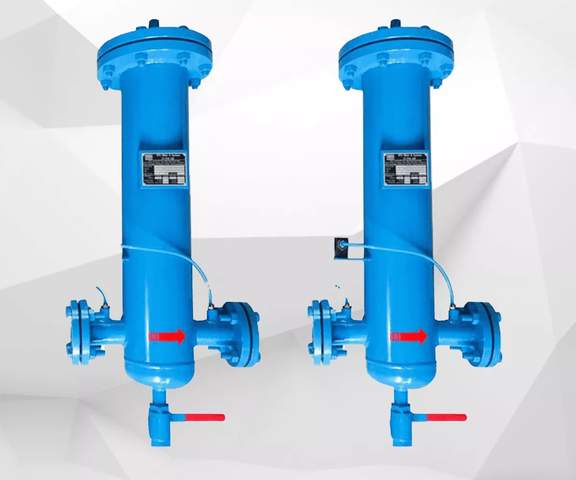The compressed air filter is a widely used utility in various industrial applications, powering tools, equipment, and processes. However, compressed air can also be a significant source of energy consumption and associated costs in a manufacturing facility. One of the key factors that can impact the energy efficiency and cost savings of a compressed air system is proper filtration.
Energy Efficiency in Compressed Air Filters:
Energy efficiency is critical in any industrial operation, as it directly impacts operating costs and environmental sustainability. Compressed air systems are known to be energy-intensive, with a significant portion of the energy used for compressing air being converted into heat and lost during the compression process. Additionally, contaminants in compressed air can further reduce the system’s efficiency, leading to increased energy consumption and operational costs.
Areas Where Compressed Air Filter Impacts Energy Efficiency:
Air compressor operation:
One of the primary areas where compressed filtration can impact energy efficiency is air compressors’ operation. Contaminants such as dust, dirt, and solid particles can enter the compressor and accumulate on compressor components, including the intake filters, intercoolers, and aftercoolers. These contaminants can reduce the efficiency of the compressor by increasing pressure drop, reducing airflow, and causing wear and tear on components. As a result, the compressor may need to work harder and consume more energy to maintain the required air pressure, leading to increased energy consumption and higher operating costs.
Solution:
Proper filtration of the intake air can help reduce the contaminants that enter the compressor and extend its lifespan, resulting in improved energy efficiency and cost savings. Filters with high filtration efficiency, such as those with pleated filter media and pre-filters, can effectively capture solid particles and prevent them from entering the compressor. This helps reduce pressure drop, maintain optimal airflow, and minimise wear and tear on components, resulting in improved compressor efficiency and lower energy consumption.
Air dryer operations
Another area where air filtration offered by Compressed Air Filter Manufacturer in India can impact energy efficiency is in the operation of air dryers. Air dryers are used to remove moisture from compressed air, prevent corrosion and damage to components, and improve the performance of downstream equipment. However, air dryers consume energy in their operation, and overloaded air dryers can be less effective in removing moisture, leading to increased energy consumption.
Solution:
Filters with appropriate filtration techniques, such as coalescing and adsorption, can effectively capture and prevent moisture droplets from reaching the air dryer. This helps reduce the load on the air dryer, improving its performance, and reducing energy consumption. Additionally, filters with low resistance filter media and appropriate filter sizing can prevent pressure drop, ensuring the air dryer operates efficiently and consumes less energy.
Cost Savings with Compressed Air Filter:
Proper filtration of compressed air can also lead to significant cost savings in industrial operations. Here are some key ways in which compressed air filtration can contribute to cost savings:
1. Reduced Downtime and Maintenance Costs:
Contaminants in compressed air, such as solid particles, oil vapour, and water vapour, can cause damage to downstream equipment, including pneumatic tools, valves, and actuators. This can result in increased downtime for equipment maintenance and repairs, leading to higher operational costs.
By implementing proper filtration, contaminants can be removed from compressed air, reducing the risk of damage to downstream equipment and minimizing downtime.
2. Extended Equipment Lifespan:
Compressed oil filter protects downstream equipment from contaminants that can cause wear and tear, corrosion, and damage. By ensuring that compressed air is clean and free from contaminants, filters can help extend the lifespan of equipment, including air tools, pneumatic cylinders, valves, and other components.
This can result in cost savings by reducing the need for frequent replacement of equipment and components, leading to lower capital expenditures and operational costs.
3. Energy Savings:
As mentioned earlier, compressed air systems can be energy-intensive, with a significant portion of energy consumption attributed to the compression process. Contaminants in compressed air, such as dust, dirt, and moisture, can increase pressure drop, reduce airflow, and cause the compressor to work harder, resulting in higher energy consumption.
Proper filtration can help reduce the load on the compressor and other components, optimizing their performance and improving energy efficiency.
4. Reduced Product Losses:
In industries where compressed air is used for product manufacturing or processing, contaminants in compressed air can cause product quality issues and product losses. For example, in food and beverage processing, contaminated compressed air can result in product spoilage, increased rejections, and increased waste.
Implementing proper filtration removes contaminants from compressed air, ensuring that the compressed air used in the manufacturing process is clean and free from contaminants.
5. Compliance with Industry Regulations:
Many industries are subject to regulations and standards that specify the compressed air quality used in their processes. For example, industries such as pharmaceuticals, electronics, and food and beverage processing have strict requirements for compressed air quality to ensure product safety and compliance with regulatory standards.
Non-compliance with industry regulations can result in fines, penalties, and potential legal liabilities, leading to increased costs. Proper filtration can help avoid these costs by ensuring industry regulations and standards compliance.
Conclusion:
Compressed air filtration is critical in ensuring the energy efficiency and cost savings of compressed air systems in industrial operations. Proper air filtration offered by the best Compressed Air Filter supplier in India like GTS Filters and Systems (India) can help remove contaminants, ensuring that it is clean, dry, and free from impurities before it is used in industrial processes.


